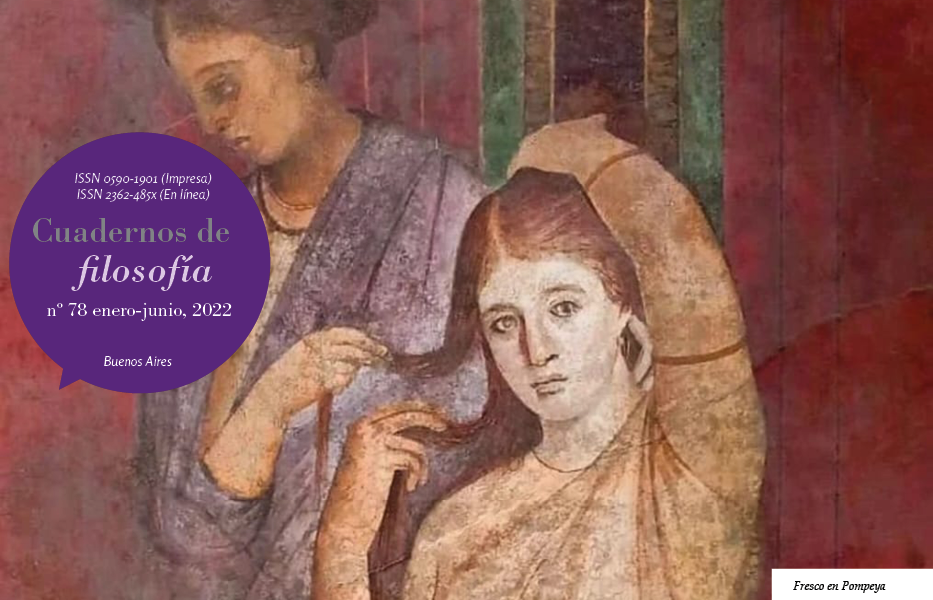Pain and Melancholy in the Concept of History.
Benjaminian thought on the horizon of the archive
Abstract
This article starts by arguing that Walter Benjamin's concept of history puts the pain at the center of the scene, not to configure a learning experience or to settle for remembrance, but to underline the state of debt to the past and to show that only in these terms does reflection on political action make sense. The attention to the pain of the vanquished is articulated in Benjamin with an affection that flies over his entire theoretical production -and also his life- such as the melancholy for the truncated past. In this way, pain and melancholy become the conditions for the possibility of the understanding of history. Likewise, in a context such as the current one that has been called the era of the archive, in which the collection and the techniques and policies of archiving and declassification seem to be unavoidable devices of the thought of history, it becomes central to inquire about the way in which pain and melancholy deepen the experience and are the privileged vectors of its knowledge.Downloads
Los autores/as que publiquen en esta revista aceptan las siguientes condiciones:
Los/as autores/as [traductores/as] conservan los derechos de autor/a y ceden a la revista el derecho de la primera publicación, con el trabajo registrado con Licencia Creative Commons Atribución-NoComercial-CompartirIgual 4.0 Internacional, que permite a terceros utilizar lo publicado siempre que mencionen la autoría del trabajo y a la primera publicación en esta revista.
Los/as autores/as pueden realizar otros acuerdos contractuales independientes y adicionales para la distribución no exclusiva de la versión del artículo publicado en esta revista (p. ej., incluirlo en un repositorio institucional o publicarlo en un libro) siempre que indiquen claramente que el trabajo se publicó por primera vez en esta revista.
Se permite y recomienda a los/as autores/as a publicar su trabajo en Internet (por ejemplo en páginas institucionales o personales).
Políticas de detección de plagio
La colaboración de los y las editores/as, autores/as y evaluadores/as de esta revista y la guía de ética de los procesos editoriales se rige por los Principios de transparencia y buena práctica en publicaciones académicas del Committee on Publication Ethics (COPE) disponible aquí.
Todos los artículos enviados a esta publicación serán supervisados mediante una búsqueda online.







